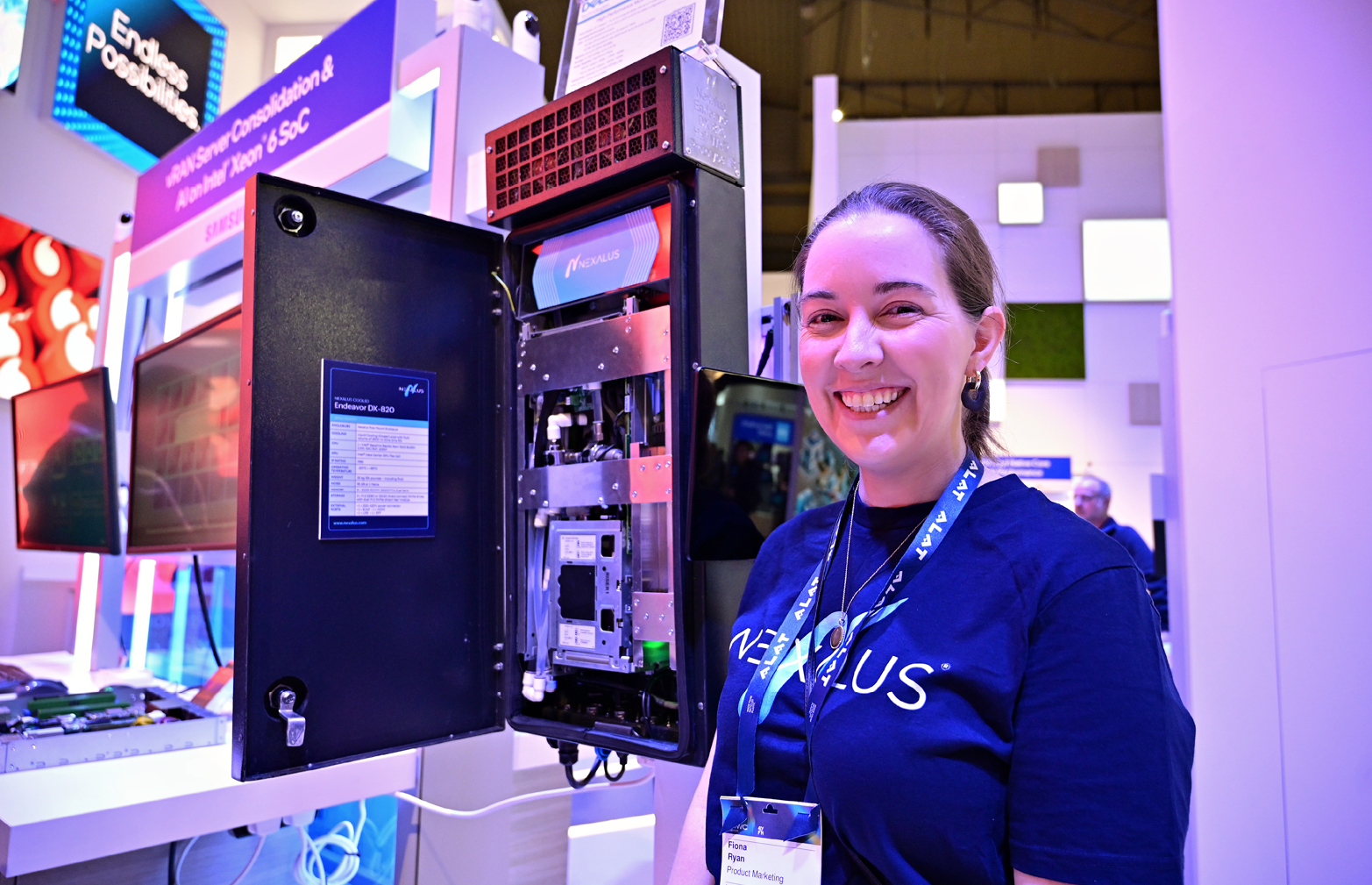Nexalus, Intel Deliver Innovative Cooling Tech as Computing Demand Grows
Intel Newsroom
Hidden out of plain sight, small, suitcase-sized boxes perched high on transmission towers are responsible for every cellphone call, video and text, every second, every day.
Crammed inside each box, an orchestra of Intel-based communications equipment – GPU, CPU, network interface cards and numerous other electronics – must be kept safe from extreme weather (think sub-zero temperatures or scorching desert-like heat) to operate efficiently.
The communications boxes must also meet stringent local regulations. For example, they must be relatively light, weighing in at no more than 22 kilograms (less than 50 pounds), and have to run quietly.
As AI usage grows across numerous devices powering a new AI-centric era, so too does the demand for computing. All that demand takes power to run the central processing units (CPUs), graphics processing units (GPUs) and network cards. And that generates heat – lots of heat. Some 5G-based devices run at up to 81 degrees Celsius under full load.
Left unchecked, that heat will degrade performance, lead to system instability and potentially trigger hazardous fires.
Nexalus has exactly what these customers need.
Taking a Scalpel to a Red-Hot Issue
Headquartered in Cork, Ireland, this scientific and engineering company has collaborated with Intel to develop advanced thermal solutions that optimize efficiency and reduce costs of CPU- and GPU-based edge deployments.
These solutions, featuring smart heat exchangers, cold plates and tiny microjets that quickly pump cooling liquid across the hottest parts of a CPU and GPU, can capture over 95% of computation energy dissipated, repurposing it into hot water that can be redirected elsewhere as sustainable heat sources.
The tech is encased in the suitcase-sized, weather-sealed IP66 box that holds the tech to power modern 5G transmission towers.
This approach – akin to taking a precision-engineered scalpel to a long-standing computing challenge – is a greener, smarter alternative to today’s noisy, energy-inefficient cooling methods, like air-cooled ventilation fans.
Nexalus specifically engineered this technology for Intel® Xeon™ processors. It’s the result of 2-plus years of research, design and rapid prototyping with Intel engineers around the world.
For further insight – Read the full Intel Newsroom post here









